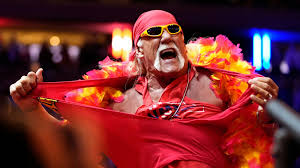
Introduction
Hulk Hogan, born Terry Gene Bollea on August 11, 1953, is a name synonymous with professional wrestling. His larger-than-life persona and charismatic performances made him a household name in the 1980s and beyond. Hogan not only changed the landscape of wrestling with his showmanship but also carved out a significant place in American pop culture, influencing generations of fans. With the wrestling industry continually evolving, Hogan’s legacy remains vital to understanding its history and future.
Rise to Stardom
Hogan’s journey to stardom began in the late 1970s when he started working with the American Wrestling Association (AWA). However, it was his partnership with WWE (then WWF) in the early 1980s that catapulted him to global superstardom. His iconic catchphrases, like “Whatcha gonna do, brother?” and his signature leg drop finisher helped him become the face of the industry, leading to unprecedented popularity and the first WrestleMania event in 1985.
Influence Beyond Wrestling
Aside from his wrestling achievements, Hogan’s influence extends into movies, television, and merchandise. He starred in films such as “Rocky III” and “No Holds Barred,” and his reality show, “Hogan Knows Best,” garnered significant viewership on TV. These ventures proved that wrestling stars could transition into mainstream entertainment, paving the way for future wrestlers.
Challenges and Controversies
Despite his successes, Hogan’s career has faced its share of controversies, including legal battles and public statements that have drawn criticism. In 2015, he faced backlash over a leaked recording that contained racial slurs, leading to his removal from the WWE Hall of Fame for a period. However, after expressing remorse and working through the situation, Hogan was reinstated, showing a path of redemption that engages fans’ empathy and interest.
Legacy and Future
Today, Hulk Hogan is not just seen as a wrestler but as an icon who played a substantial role in shaping the industry. Although he has significantly scaled back his in-ring appearances, his influence is still felt, whether through WWE events or as a pop culture reference. Fans and wrestling newcomers alike recognize Hogan as a symbol of entertainment, resilience, and reinvention.
Conclusion
The legacy of Hulk Hogan is a testament to the power of charisma in professional wrestling and the broader entertainment industry. As the wrestling world continues to evolve, the impact Hogan has left will remain a critical part of its tapestry. For all wrestling enthusiasts, understanding Hogan’s journey provides valuable insight into how the sport has transformed and hints at what the future may hold for the next generation of wrestling superstars.



